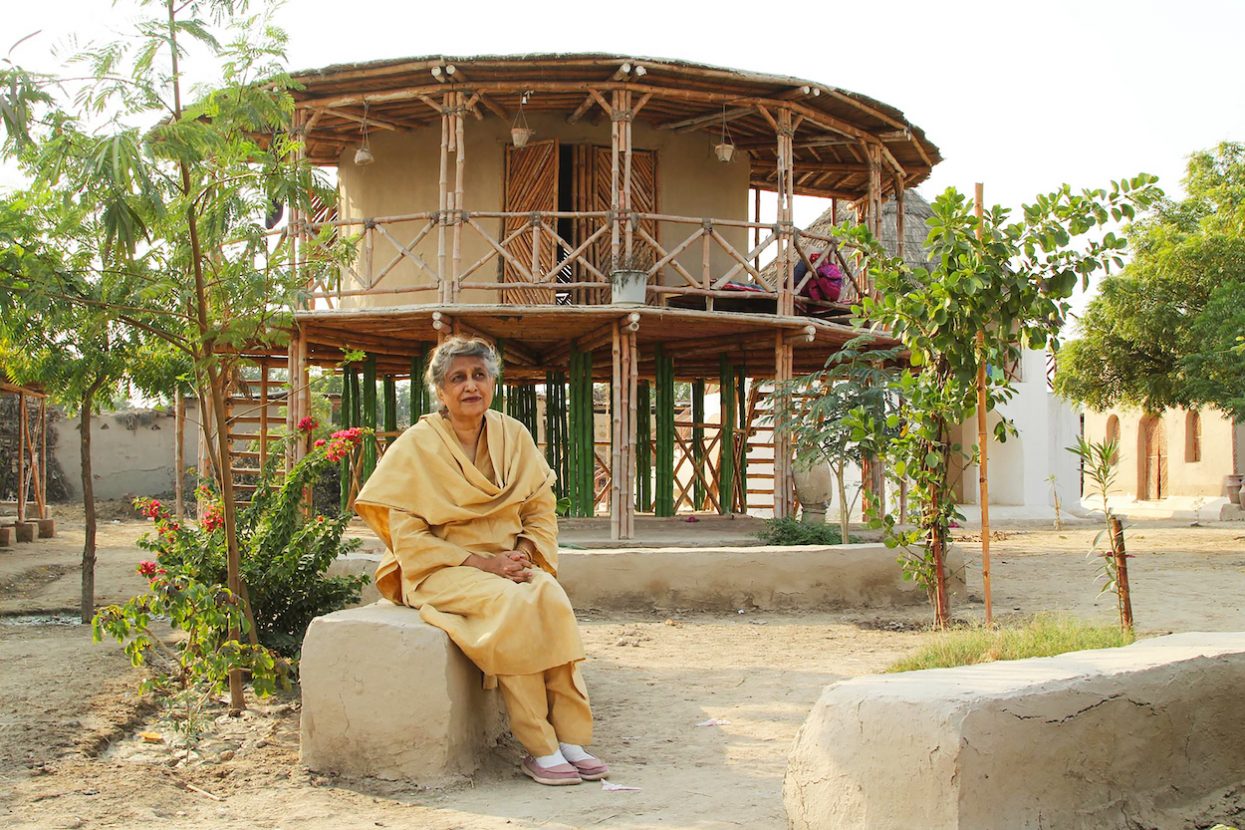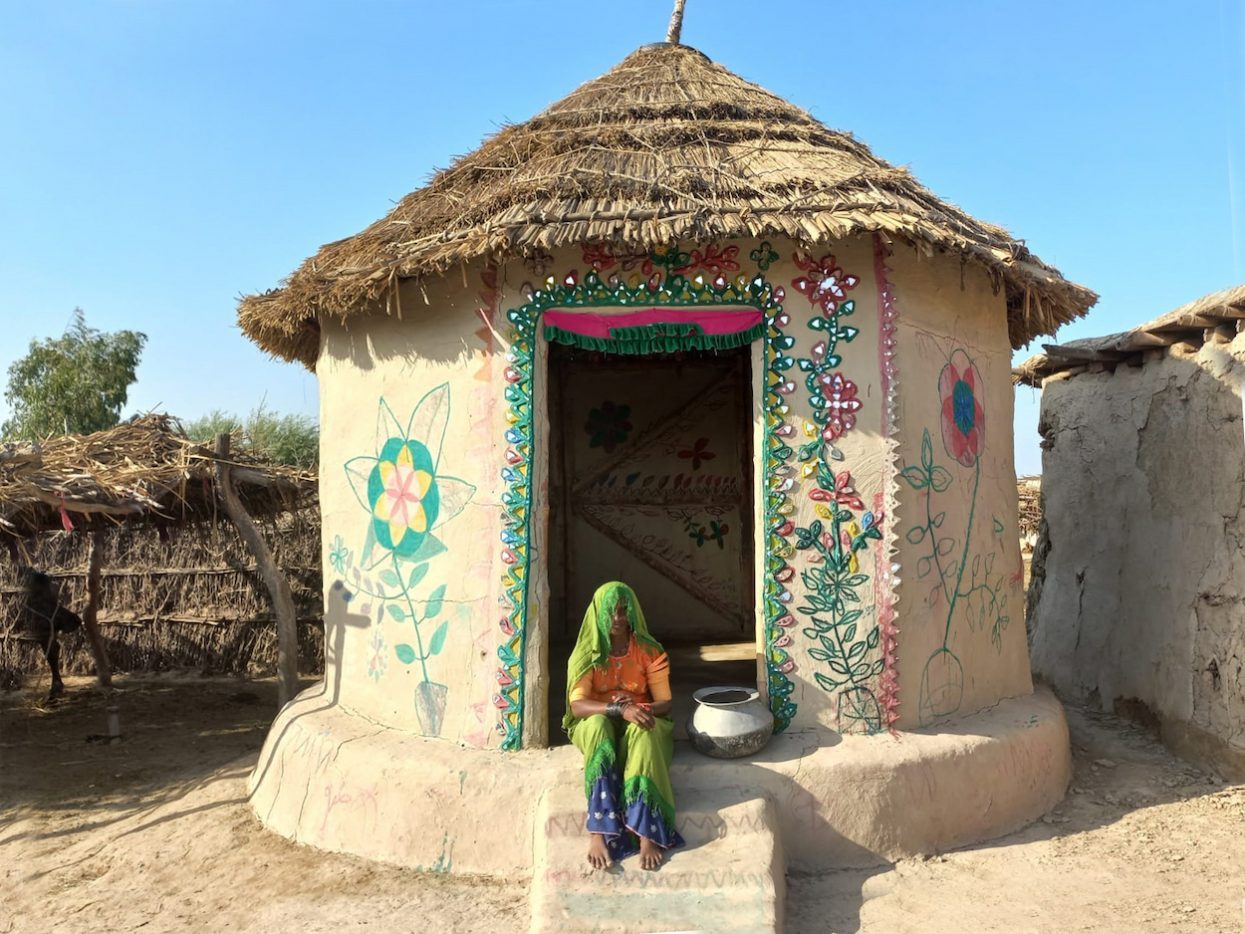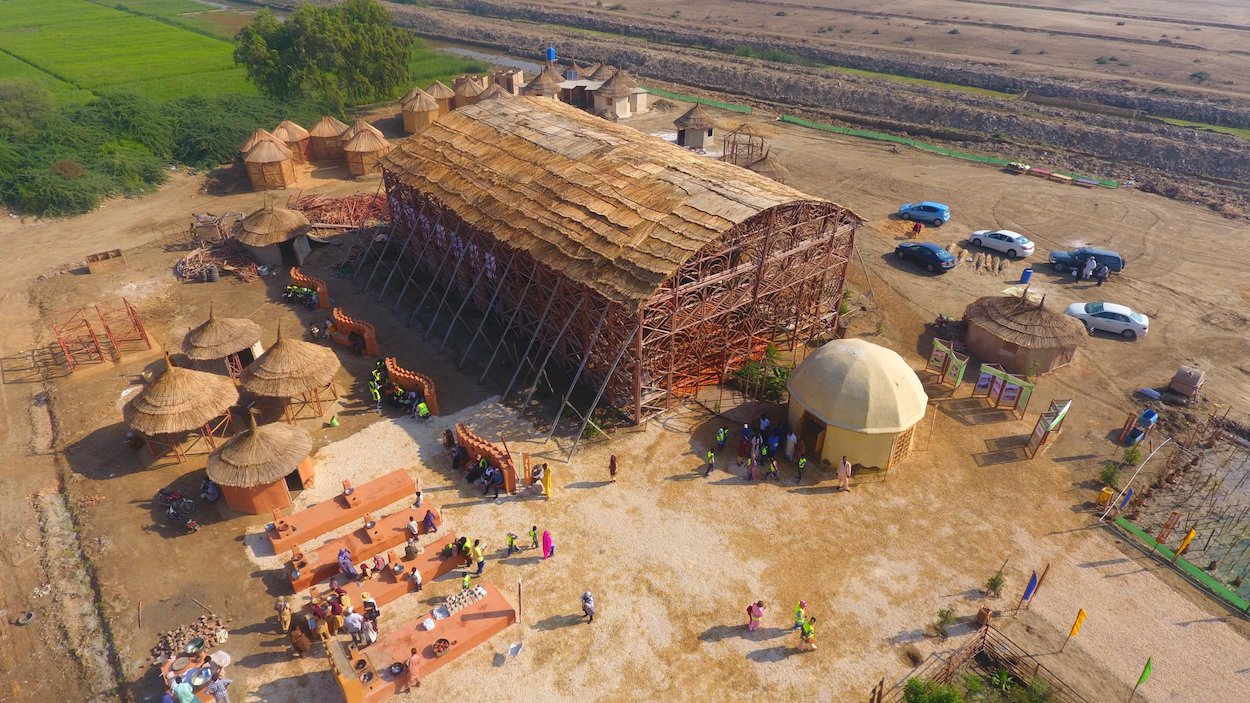Yasmeen Lari’s most famous building may be the headquarters for Pakistan’s state-owned oil company, a hulking Brutalist behemoth in Karachi. But lately the 82-year-old—Pakistan’s first certified female architect and the recipient of this year’s RIBA Royal Gold Medal—is fixed on a much different typology: refugee housing. It’s a noble pursuit given how the Central Asian country has repeatedly endured once-in-a-generation disasters at an alarming frequency. A major earthquake displaced 400,000 people in 2005; monsoon floods affected 33 million Pakistanis last year, submerging one-third of the country.
Yet refugee housing often leans on Western building materials ill-suited for the region. “I call it the international colonial charity model,” she tells Time. “NGOs and UN agencies say, ‘let’s bring in concrete, let’s bring burnt brick.’” Besides being “alien,” such carbon-intensive materials worsen the greenhouse effect causing climate disasters. As an alternative, Lari and her Heritage Foundation of Pakistan are building flood-resilient homes using local, low-carbon materials such as bamboo panels reinforced with earth and lime that sit on raised platforms. More than 3,500 homes were built last year at $200 each; a million are slated by 2024.


